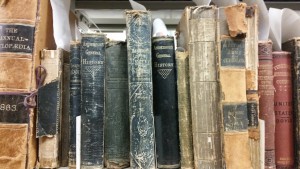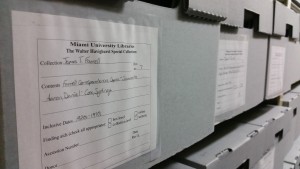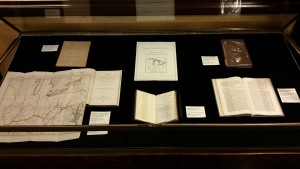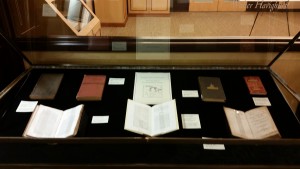One of the great advantages of receiving a graduate degree through Miami University’s History Department is the guaranteed assistantship position that provides for your tuition and living stipend. The default assistantship is a teaching position alongside one of the many esteemed faculty members in the department. However, as I have experienced, the History Department’s graduate program is more than willing to let their students look elsewhere for work to fulfill their assistantship requirements (and still get paid!). These out-of-department opportunities allow students to apply their historical training in different settings and gain new skillsets for the all too quickly approaching job market. I enjoyed teaching undergraduate courses. It was a great mixture of guidance from professors and freedom to be creative with lessons.
Although, knowing that teaching was not my first choice for a career path and I was not looking to go immediately into a doctoral program, I chose to venture elsewhere on campus to offer my services. At the time I knew I wanted to work with historical objects and the public, whether that be museums, archives, libraries, living history, etc. I asked Special Collections if I could work for a semester in their department to learn what it was like to work with rare books, organize manuscript collections, and possibly dabble in digitization. During this past semester, I achieved those goals and then some, gaining valuable skills that I happily placed on my resume already.
My primary responsibility this semester was the conservation and updating of the James T. Farrell collection, which was donated to Special Collections in the 1990s by Dr. Edgar Branch, former Miami University professor of English and American Literature. Branch, a personal friend and official biographer of Farrell, extensively collected anything to do with the twentieth century author. Writing in the same era as Hemingway and Steinbeck, Farrell published over fifty novels, ranging from coming-of-age tales to political commentaries. The collection includes personal correspondences, journals, manuscripts, and several other pieces of the author’s personal life. This was (and still is) a long-term task, but it was a great lesson in basic document conservation and finding aid organization. I now also know about everything there is to know about the late author, and have a Nook library full of his books to read.
I also had additional tasks that I performed on an as needed basis. These were often short-term projects that just needed done around the department that I gladly volunteered for to broaden my experience. My favorite thing to do was occasionally curate some display cases highlighting special events in the library with books from the closed stacks of Special Collections. I even did displays with my own theme of choice, where I highlighted the department’s extensive collection of books about the Old Northwest Territory (my favorite historical time and place). Curating allowed me to become more familiar with the books in Special Collections and gain experience in visually displaying objects.
A primary goal of mine going into the semester was to gain experience in digitization. With new emerging technology, documents and artifacts are able to be scanned and captured in better quality than ever before. I used the book scanner to create images for researchers and professors unable to devote an extended amount of time in our reading room, but I also got to help with the re-digitization project of the Shakespeare Folios. Photographing every single page of several books requires continuous attention to focus, distance, book margins, glass placement, and pretty much everything. Now that the process is finished, the Folios are available for the rest of the world to view and it is a great feeling knowing I helped (however minute).
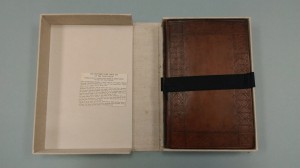 (Link to Digital Librarian Marcus Ladd’s blog post about the process of the Shakespeare Folio project here, and link to view the Folios here)
(Link to Digital Librarian Marcus Ladd’s blog post about the process of the Shakespeare Folio project here, and link to view the Folios here)
I did several other tasks in Special Collections: shelve books, help students research, assist in class visits, aid in the spring semester’s exhibition reception. All of these experiences will, I am sure, help me in the next chapter of my life, or at least the search of that next chapter. I am applying to a variety of jobs, including education, museum, archive, government, and research positions, all over the country. Nothing is a sure thing yet, but I am willing to make the most of the journey and glad to have had this diverse graduate student experience.
Thank you once again to Special Collections and the History Department. I only wish I could stay longer.
Dana Bogart, M.A.
